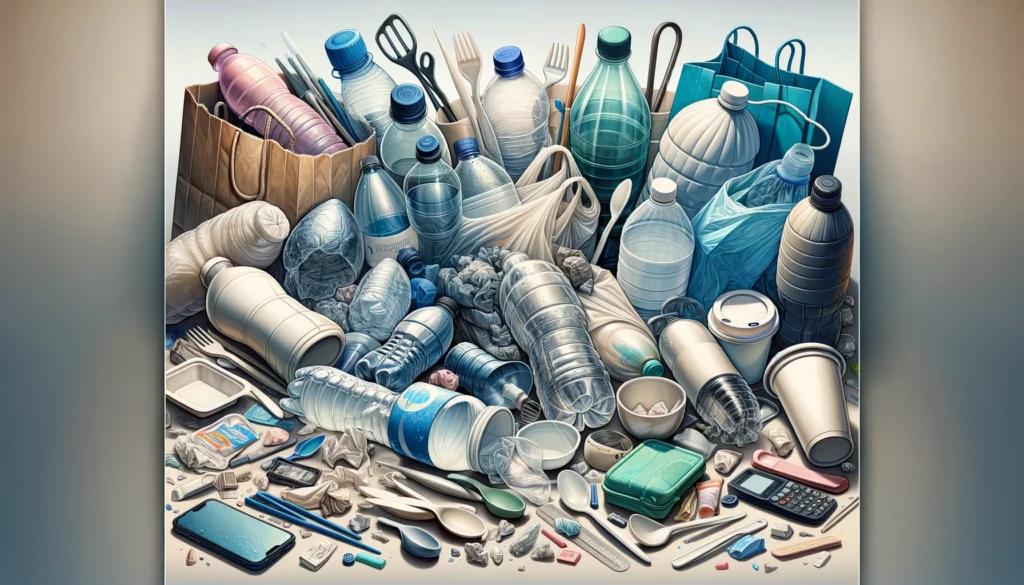Plastic is probably the most impactful material of the past century. It’s so durable, and cheap, that it’s become popular enough to be one of the biggest environmental problems of our time. We just can’t get rid of it. In a compact and approachable book, two researchers give a crash course in plastics. It’s everything you need to know from basic plastic chemistry to how plastics can be recycled and developed sustainably — truly an important read in this day and age.

For a few years, the MIT Press has been published an “Essential Knowledge” series. Now, the series already has 93 books, covering topics from intellectual property to free will and sustainability. This new entry on plastics is one of the most important ones.
The age of polymers
The story of plastics begins in the 19th century, with the development of Parkesine, the first man-made plastic, by Alexander Parkes in 1862. This innovation marked the advent of synthetic materials, which could mimic natural substances like ivory and tortoiseshell. However, it was Leo Baekeland’s creation of Bakelite in 1907 that truly heralded the age of plastics. Bakelite was the first fully synthetic plastic, beginning an era of materials designed for mass production and everyday use.
This brought about the “age of polymers.”
Plastics are polymers, large molecules composed of repeated subunits called monomers. The versatility of plastics comes from the ability to manipulate the chemical structure of these monomers and the process of polymerization, allowing for a wide range of materials with different properties.
The first plastics were rudimentary, hardening permanently after being shaped and heated. Year after year, however, the technology improved. Advancements in polymer science have led to the development of various specialized plastics, including bioplastics made from renewable resources and biodegradable plastics designed to break down more quickly in the environment. But let’s not get ahead of ourselves.
From hero to environmental villain
Unfortunately, the majority of plastics in use today are derived from fossil fuels, contributing to carbon emissions and climate change. The process is traditionally energy intensive. And, despite some progress, plastic emissions are still a big problem. Plastic generates 3% of our total greenhouse gas emissions, more than most countries.
But the bigger problem is pollution.
- Walker-Franklin, Imari (Author)
- English (Publication Language)
- 144 Pages – 08/22/2023 (Publication Date) – The MIT Press (Publisher)
Once in use, the durability of plastics becomes a double-edged sword. While beneficial for product longevity, it results in persistent environmental pollution. Plastics can take hundreds to thousands of years to decompose, accumulating in landfills and natural habitats. The situation is exacerbated by single-use plastics, which create immediate waste after a short lifespan.
Plastic pollution has become a critical issue for oceans, with millions of tons entering marine ecosystems annually. This not only harms marine life through ingestion and entanglement but also leads to the formation of vast garbage patches. Microplastics, tiny plastic fragments, have permeated the most remote and pristine environments, posing risks to wildlife and human health alike.
Fighting plastic pollution
Both authors have dedicated some of their work to science communication. Imari Walker-Franklin is a research scientist at RTI International in North Carolina’s Research Triangle Park as well as a writer, actor, and director for her science communication YouTube channel, which discusses plastic pollution and its possible solutions. Jenna Jambeck is a professor in Environmental Engineering at the University of Georgia, founder of the Circularity Informatics Lab, and co-developer of Marine Debris Tracker.
So, it’s not surprising that an important part of the book is dedicated to the sustainability aspects of plastic production and recycling.
Combating plastic pollution requires a multi-faceted approach. Increasing recycling rates is crucial, yet current global recycling efforts are insufficient due to the complexity of sorting and processing different plastics. Innovations in chemical recycling, which breaks plastics back down into their monomer forms, also hold promise for more efficient recycling processes. But we need a combination of multiple things to have real progress, and recycling is still lagging.
Bioplastics and alternative materials present another avenue for reducing dependence on traditional plastics. Products made from plant-based materials, such as corn starch or algae, can offer similar functionality with less environmental impact. However, their production must be carefully managed to avoid competition with food sources and ensure they are genuinely biodegradable in natural environments.
Policy and consumer behavior also play critical roles. Governments around the world are implementing bans on single-use plastics and encouraging the development of circular economies, where materials are reused and recycled continuously. Consumers are increasingly seeking sustainable options, driving demand for products with less packaging and greater recyclability, further changing the plastic landscape.
An important read
We all interact with plastic on a daily basis. We all (hopefully) know that plastic pollution is a major environmental problem. But not many of us understand the full scope of its impact — from the moment of its creation to its enduring presence in our ecosystems.
This book peels back the layers of convenience and ubiquity to reveal the stark reality of plastics. We are all stakeholders when it comes to plastic, and we all have a shared responsibility. We shouldn’t overlook it.
Overall, authors Imari Walker-Franklin and Jenna Jambeck have masterfully distilled their expertise into a narrative that is not only accessible but deeply engaging. It bridges the gap between academic research and public consciousness, hopefully making a significant impact in the process.








